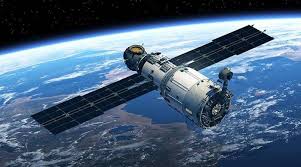ISLAMABAD: Pakistan’s Space and Upper Atmosphere Research Commission (SUPARCO) has unveiled a groundbreaking collaboration with China for the upcoming 2028 Chang’e-8 lunar mission, marking Pakistan’s first major involvement in lunar exploration.
A SUPARCO spokesperson confirmed that as part of the partnership, Pakistan will contribute a 35-kilogram rover, which will be deployed to explore the lunar south pole. The rover is expected to play a crucial role in the mission, advancing lunar surface research and providing valuable data to enhance scientific understanding of the Moon’s environment.
The Chang’e-8 mission, scheduled to land on the Moon in 2028, will focus on groundbreaking research, including the exploration of lunar resources and conducting high-level experiments. The Pakistani rover will contribute to the mission’s goals by helping to map and analyze the lunar surface in unprecedented detail.
Earlier this year, in May, Pakistan also participated in space exploration through the launch of the iCube Qamar, a CubeSat satellite, which was sent aboard China’s Chang’e-6 mission from Hainan, China. The iCube Qamar entered lunar orbit on May 8, 2023, marking another milestone in Pakistan’s growing space capabilities.
CubeSats, which are compact and modular satellites, are designed for various purposes such as scientific research, technology testing, and educational missions. With their small size—typically weighing just a few kilograms—CubeSats like the iCube Qamar serve to advance space exploration and offer valuable insights into a range of scientific disciplines, including Earth observation, remote sensing, atmospheric research, and communications.
This new partnership with China in the Chang’e-8 mission further solidifies Pakistan’s commitment to advancing its space program and contributing to international efforts in lunar exploration.


